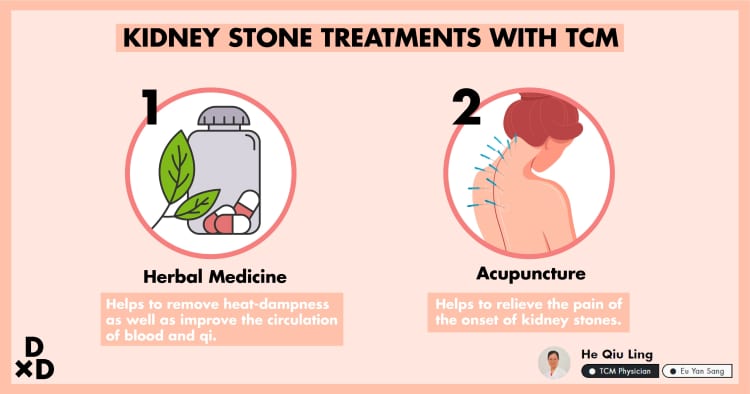There are different kinds of kidney stones and they are formed in different ways. In general, minerals accumulate, creating crystals, which is what we know as kidney stones. The different kinds of minerals are calcium oxalate, Calcium Phosphate, struvite, Uric Acid, Cystine, and Xanthine. [1]

1.Calcium stone (Calcium phosphate and Calcium Oxalate)
This is the most common kidney stone and it can come in the form of two minerals — Calcium Oxalate and Calcium Phosphate. When there is insufficient liquid and too much minerals, minerals attached themselves to calcium while the kidney is making urine. This process creates kidney stones.
Why do they accumulate? [2]
Oxalate is present in food and is produced by our liver. Various factors would increase the amount of oxalate in one’s body and this includes:
Eating fruits, vegetables, nuts and chocolates with high percentages of oxalates
Consuming excess vitamin D
Intestinal bypass Surgery
Metabolic disorders (eg. Renal tubular acidosis)
Excessive Purine intake (eg. Intake of Alcohol, Seafood and liver)
Excessive Sodium intake
Calcium phosphate stones are typically present in metabolic conditions (eg. Renal tubular acidosis).
Consume certain types of seizure medicine (eg. Topamax)
more alkaline urine
renal tubular acidosis raise average urine alkalinity
2.Struvite Stones
To begin with, Struvite Stones are formed in alkaline conditions. There are 3 main steps to the crystallisation. Firstly, protein, DNA and RNA are broken down into urea. Next, specific types of bacteria found in our guts break down urea. Lastly, phosphate and magnesium already present in the urine is combined with ammonia to create crystals. This process can cause kidney stones to grow rapidly.

Who does it affect?
People with specific types of infections (eg. Urinary Tract Infection) that result in alkaline conditions.
3.Uric Acid Stones
Uric acid is formed when DNA and RNA are broken down. When the urine is acidic (when the pH is low), these molecules become less water-soluble. Consequently, Uric Acid falls out of the solution and crystallises.
Who does it affect?
People who consume an insufficient amount of liquid
People with acidic urine:
Obese and Diabetic people
Gout or Kidney disease
4.Cystine Stones
Cystine stones grow rapidly and they can be plugged at the end of kidney tubes, resulting in cell damages. People with a hereditary disorder allows the kidneys to excrete excess cystine. Elongated and big cystine molecules are not as soluble, crystallising.
Who does it affect?
People with a hereditary disorder
5.Xanthine Stones [3]
Due to the lack of a specific enzyme, Xanthine is not broken down and if left to accumulate.
Who does it affect
People with Hereditary xanthinuria
Kidney stones can get stuck in our urinary tract, blocking our urine from leaving our body. This can cause pain and bleeding. If you suspect that you have kidney stones, it is essential to seek the advice of a urologist. For more information on kidney stone infection, click here.
1. PREMINGER.GLENN. Stones in the Urinary Tract. MSD Manual Consumer Version. Published 2019. Accessed December 19, 2019.
2. Finkielstein VA. Strategies for preventing calcium oxalate stones. Canadian Medical Association Journal. 2006;174(10):1407-1409. doi:10.1503/cmaj.051517
3. Genetics Home Reference. Hereditary xanthinuria. Genetics Home Reference. Published 2012. Accessed December 19, 2019.

